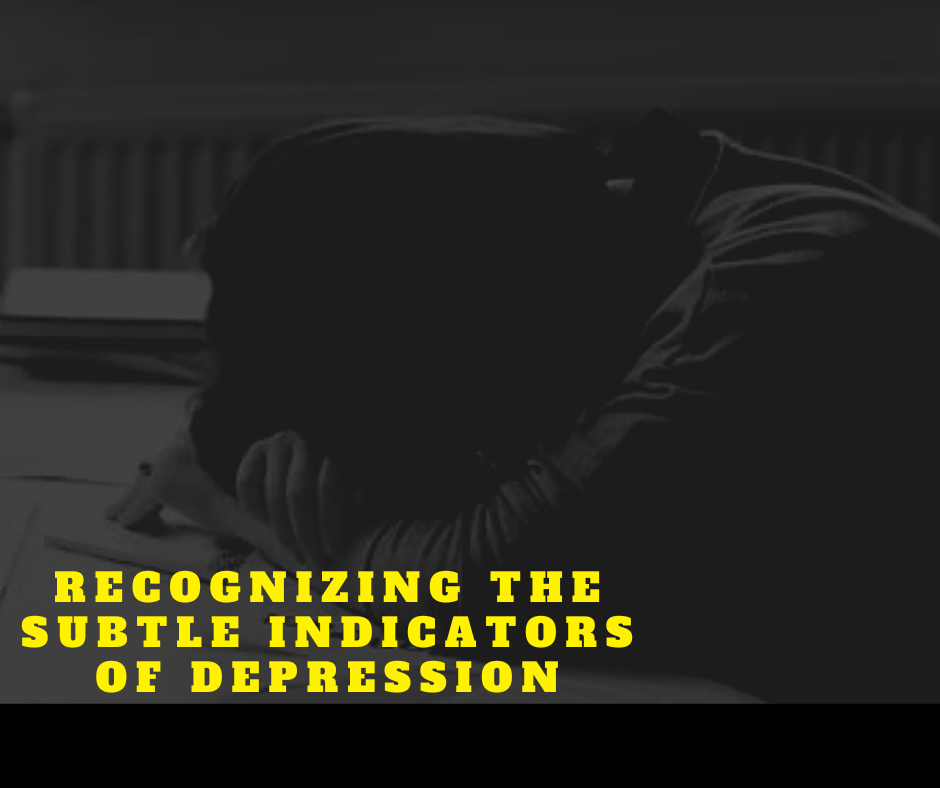
Depression is a pervasive mental health condition that affects millions worldwide. Often misunderstood and frequently overlooked, depression manifests in various ways that can be subtle and easily dismissed. Recognizing these indicators is crucial for early intervention and effective treatment.
1. Persistent Sadness and Low Mood
While occasional sadness is a normal part of life, persistent sadness that lasts for weeks or months can indicate depression. This low mood often appears without an obvious cause and can be accompanied by a sense of hopelessness or emptiness. Individuals may feel a constant heaviness that makes everyday activities seem insurmountable.
2. Loss of Interest in Activities
One of the hallmark signs of depression is anhedonia, or the loss of interest in activities that were once enjoyed. This can include hobbies, socializing, or even work. People may find that they no longer derive pleasure from things that used to excite them, leading to a withdrawal from social interactions and a decrease in productivity.
3. Changes in Appetite and Weight
Depression can significantly impact eating habits, leading to noticeable changes in weight. Some individuals may experience a loss of appetite and subsequent weight loss, while others may turn to food for comfort, resulting in weight gain. These changes are often tied to the emotional fluctuations that accompany depression.
4. Sleep Disturbances
Sleep problems are common in those with depression. This can manifest as insomnia, where individuals have trouble falling or staying asleep, or hypersomnia, where they sleep excessively. Both conditions can exacerbate the symptoms of depression, creating a vicious cycle of fatigue and low energy.
5. Fatigue and Decreased Energy
Chronic fatigue is a less obvious but significant indicator of depression. This isn’t just tiredness; it’s a pervasive lack of energy that makes even simple tasks feel exhausting. This fatigue can also contribute to the lack of motivation and productivity that many with depression experience.
6. Difficulty Concentrating and Making Decisions
Cognitive impairments are often associated with depression. Individuals may find it hard to concentrate, remember details, or make decisions. This can affect performance at work or school and contribute to feelings of frustration and inadequacy.
7. Physical Aches and Pains
Depression doesn’t only affect the mind; it can also cause physical symptoms. Many people with depression report unexplained aches and pains, such as headaches, back pain, and muscle soreness. These symptoms are often overlooked but can be a key indicator of underlying depression.
8. Irritability and Mood Swings
While sadness and low mood are more commonly associated with depression, irritability and mood swings are also significant symptoms. Individuals may find themselves feeling unusually agitated or frustrated, often over minor issues. These mood swings can strain relationships and contribute to social withdrawal.
9. Feelings of Worthlessness and Guilt
A pervasive sense of worthlessness or excessive guilt is a severe but often hidden symptom of depression. Individuals may have an overwhelming sense of inadequacy, believing they are failures or burdens to others. This can lead to negative self-talk and a decreased sense of self-worth.
10. Thoughts of Death or Suicide
Perhaps the most alarming indicator of depression is recurrent thoughts of death or suicide. These thoughts should never be ignored and require immediate attention. They often indicate severe depression that needs professional intervention.
Recognizing the subtle indicators of depression is essential for early intervention and treatment. If you or someone you know exhibits these signs, seeking professional help can make a significant difference. Depression is a serious condition, but with appropriate care and support, individuals can manage their symptoms and lead fulfilling lives.